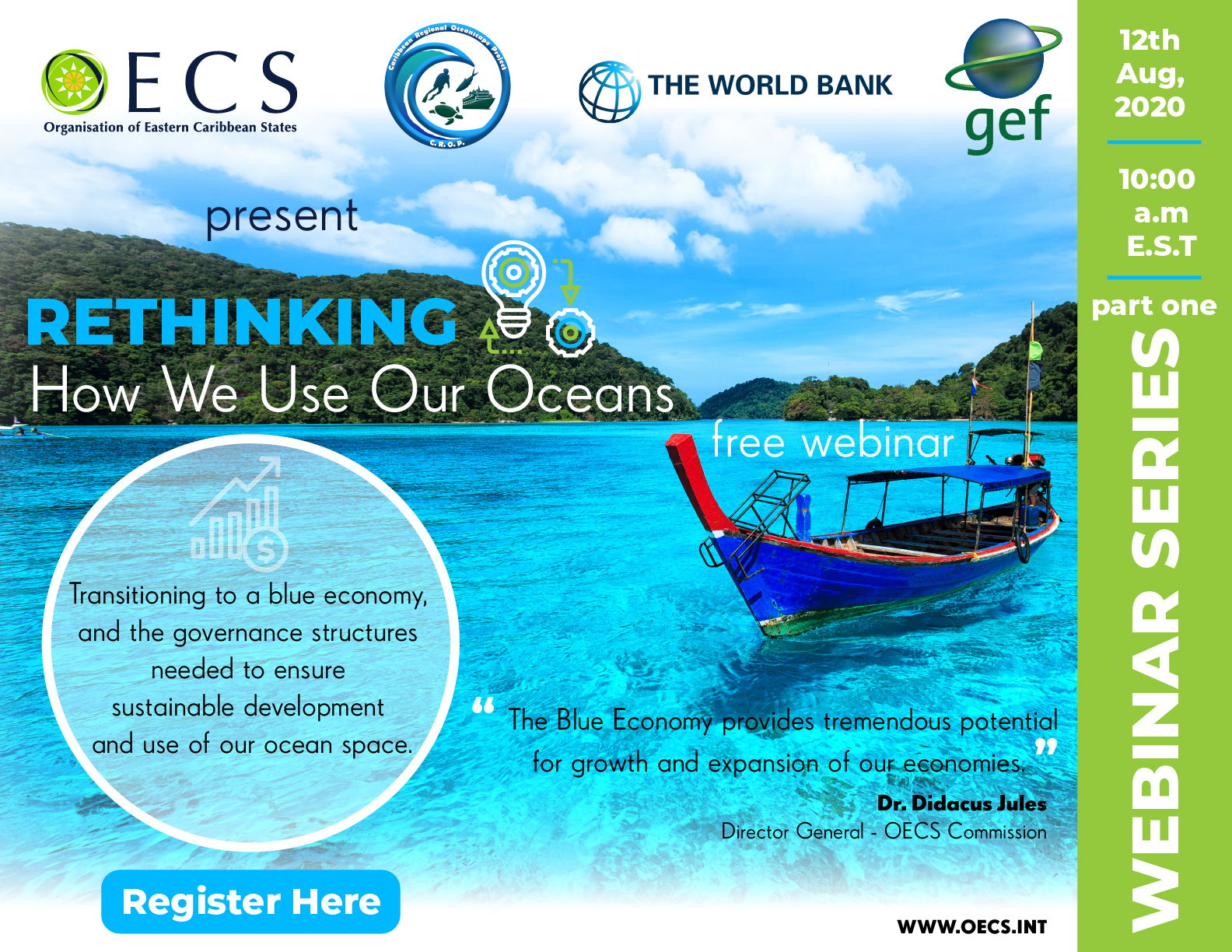OECS continues dialogue on the Blue Economy
Media Release
Building on the momentum of the dialogue on coastal and marine spatial planning in the Eastern Caribbean, which commenced in 2017, the Organisation of Eastern Caribbean States (OECS) is hosting a three part discussion on the progress made in coastal and marine spatial planning.
This discussion will take the form of three webinars, during which technical specialists and various stakeholders will inform on progress and respond to questions and requests for clarification from the public.
The first webinar will be held on August 12, 2020 from 10:00 a.m. under the topic - Rethinking How We Use Our Oceans. It will focus on transitioning to a blue economy, and the governance structures needed to ensure sustainable development and use of our ocean space.
Director General of the OECS, Dr. Didacus Jules says,
"The Blue Economy provides tremendous potential for growth and expansion of our economies. To maximize the potential of the Blue Economy and to ensure equitable sharing of its benefits, it is imperative that we all be a part of discussions and participate in this planning process.”
The second webinar on August 26 at 10:00 a.m. will discuss the Coastal and Marine Spatial Planning process under the banner – Many People One Sea: Making our Ocean Space more user friendly. The final webinar on October 7 at 10:00 a.m entitled Healthy Oceans for Current and Future Generations will examine the guidelines, rules, and compliance needed to ensure a blue economy approach.
Through the Caribbean Regional Oceanscape Project (CROP), the OECS is seeking to promote Good Ocean Governance in the region. The CROP is designed to contribute to the implementation of the Eastern Caribbean Regional Ocean Policy (ECROP) and its associated strategic action plan (SAP) by strengthening capacity for ocean governance, as well as coastal and marine spatial planning in the participating countries, to facilitate their transition to a Blue Economy.
Theme and registration link for Webinar #1:
Theme: Rethinking How We Use Our Oceans
Date and time: August 12, 2020 10:00 AM
Registration link: CLICK HERE
About the Caribbean Region Oceanscape Project (CROP)
The Caribbean Regional Oceanscape Project (CROP) is a project funded by the Global Environment Facility through the World Bank. It aims to move the Caribbean towards a blue economy. As one of the key Blue Economy frontrunners in the region, the OECS has taken the first step in enabling the transition to a Blue Economy through the adoption of the Eastern Caribbean Regional Ocean Policy (ECROP) and its associated strategic action plan (ECROP SAP), endorsed by the OECS Heads of Government in 2013. The ECROP guides the future use of the region’s marine waters and provides a basis for enhanced coordination and management of ocean resources within the Eastern Caribbean. The ECROP is the first of its kind in the Caribbean region. Outputs under the CROP include an enhanced ECROP that is aligned to the Agenda 2030 for Sustainable Development; National Ocean Policies and Strategies; National Coastal and Marine Spatial Plans; a regional Marine Spatial Plan; readily available web-based and OECS relevant ocean education materials and courses; and spatial tools to enhance decision making on ocean matters.
